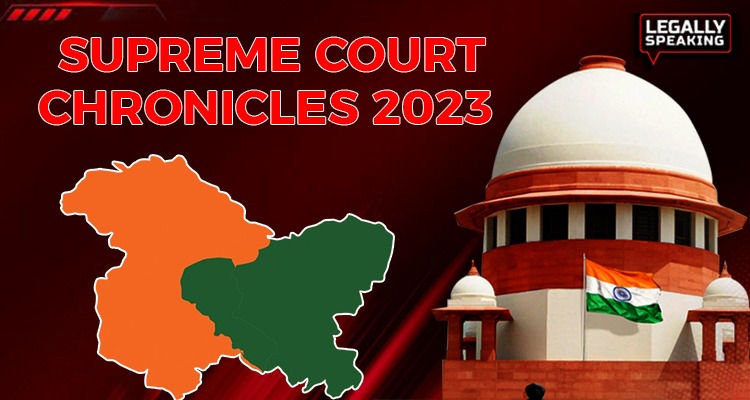
In a landmark decision, the Supreme Court of India has upheld the Union Government’s abrogation of Article 370, which granted special status to Jammu and Kashmir.
The bench, led by Chief Justice DY Chandrachud, rendered a crucial verdict on the constitutionality of the repeal, dispelling the notion that Article 370 was contingent on the J&K Constituent Assembly’s recommendation. This pivotal judgment, delivered in December, delves into the constitutional intricacies surrounding the abrogation, addressing key issues such as the validity of Constitutional Order 272 and the status of Ladakh as a Union Territory.
The court’s directives, including the mandate for J&K Legislative Assembly elections and the recommendation for a Truth and Reconciliation Committee, mark a historic turning point with far-reaching implications for the political and administrative landscape of the region.
Abrogation of Article 370 Jammu and Kashmir
- IN RE ARTICLE 370 OF THE CONSTITUTION
The Supreme Court of India validated the Union Government’s 2019 repeal of Jammu and Kashmir’s special status under Article 370. Chief Justice DY Chandrachud, leading a constitutional bench, ruled that Article 370 was temporary, not contingent on the J&K Constituent Assembly’s recommendation. The court clarified that the State’s concurrence was unnecessary to apply the Indian Constitution fully. While deeming Constitutional Order 272 ultra vires Article 370, the invalidity had no material impact. The court refrained from ruling on the J&K Reorganisation Act 2019 but upheld Ladakh’s Union Territory status. Importantly, it directed the Election Commission to conduct J&K Legislative Assembly elections by September 30, 2024, and urged the swift restoration of J&K’s statehood. Justice SK Kaul recommended a Truth and Reconciliation Committee to address human rights violations since the 1980s, leaving its establishment to the government’s discretion. This historic judgment clarified constitutional intricacies surrounding Jammu and Kashmir’s status, setting the stage for political and administrative changes in the region.




